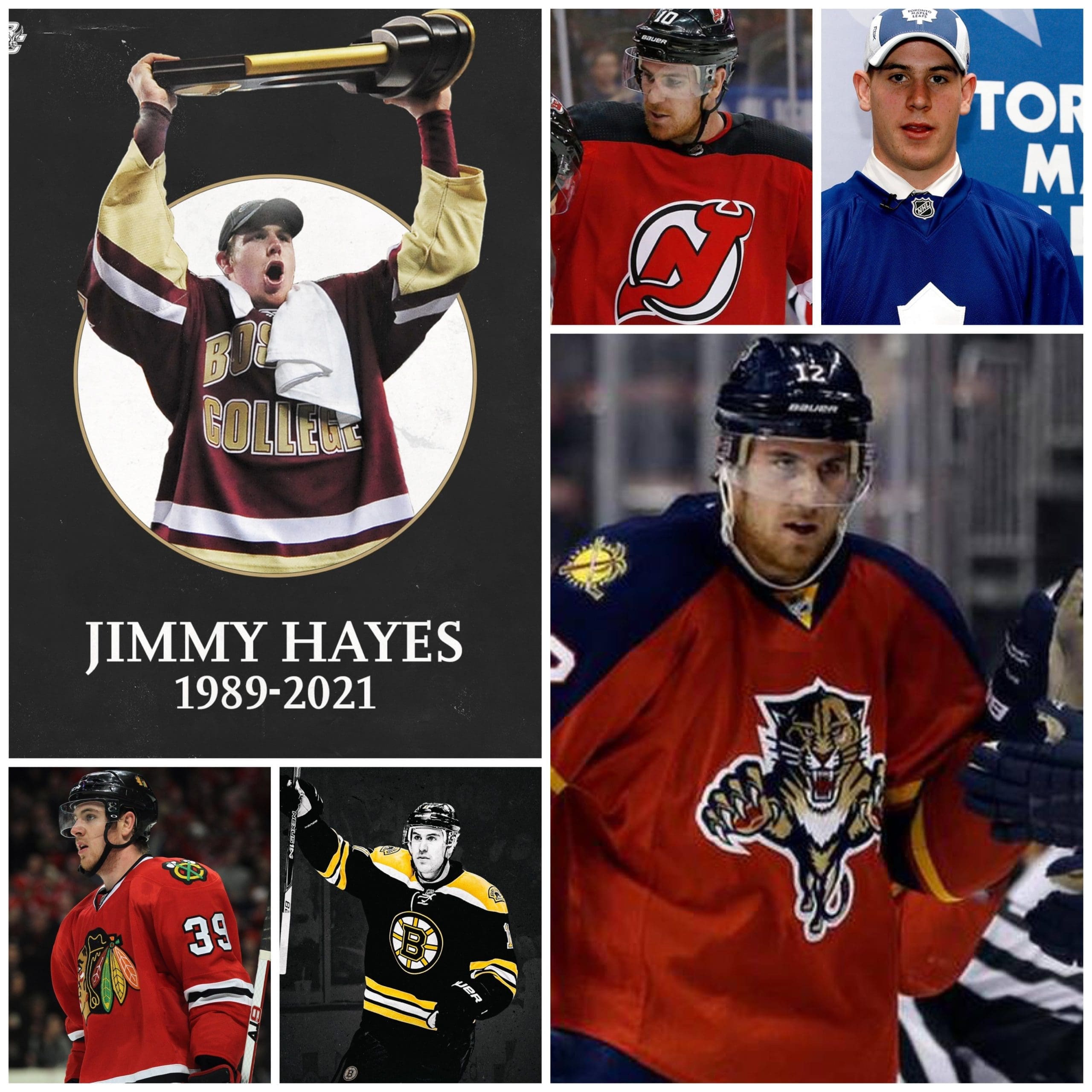Florida Panthers
Family reveals fentanyl contributed to the death of Jimmy Hayes

Jimmy Hayes, the former NHL player who spent part of two seasons with the Florida Panthers, was found dead in his Massachusetts home in August.
On Sunday, Hayes’ father and wife told Dan Shaughnessy of the Boston Globe that the toxicology report stated that Hayes died with fentanyl and cocaine in his system.
According to the Globe, an autopsy was done in the days following Hayes’ death but the family was not told of its results until Friday — when they were traveling to New Jersey for a pregame tribute to Jimmy.
Kristen Hayes told the Globe that the toxicology report from the Massachusetts state medical examiner listed the cause of death as “acute intoxication due to the combined effects of fentanyl and cocaine.”
Jimmy Hayes was 31 and left behind two young children.
“I was completely shocked,’’ Kristen told the Globe. “I was so certain that it had nothing to do with drugs. I really thought it was a heart attack or anything that wasn’t that [drugs] . . . It didn’t make any sense, so it was hard. I was hoping to get a different phone call when they called. I was hoping to get some clarity and I was shocked to hear that it was that … He never showed any signs of a struggle at home.’’
Kevin Hayes, Jimmy’s father, told the Globe that Jimmy had been dealing with an injury and had become “hooked” on the pain pills. Jimmy Hayes had gone to a rehab facility in Massachusetts and the family had thought he had fought off his problems.
“I’m an addict myself,’’ Kevin Hayes said. “I’m sober a long, long time, but I know how powerful this stuff is. I was in shock when it happened, but then I started putting stuff together in my head . . . I know what addiction does. I know about addiction. …
“He called me … and said, ‘Dad, I’m hooked on these pills. I got injured and I started taking them and I never got off.’ And I said, ‘Well, let’s get you some help.’ He went to a place up in Haverhill. So he gets help and everything was on the path to recovery, I thought. But this [expletive] is so powerful.’’
The Hayes family released the information to the Globe in the hope that someone battling with addiction will reach out and get some help.
Kevin Hayes also does not want his son to be remembered for this — not after all the good he did while he was alive.
“I don’t want him to be stigmatized like as a [expletive] junkie,’’ Kevin Hayes told the Globe “You know what I mean? Because he wasn’t. Jimmy helped everyone. Some of the stories I’ve been hearing. He never said no. [Former Bruin] Torey Krug told me they used to go to Children’s Hospital. Jimmy’d fall in love with a kid, then go back a week later. And a week later. He was just a wonderful kid, but this addiction [expletive] is just so powerful. If I had a formula that could tell people.
“I hope getting Jimmy’s story out there can save someone’s life. If this can save someone from the pain, great. It’s just so sad.”
At loss of words when I first came to Boston you were the first guy to take me under your wing. Your smile, laugh, and personality was contagious it lit up the entire room. You will be missed dearly rest easy Broadway. My thoughts and prayers are with the Hayes family ❤️ pic.twitter.com/3yRKlE75kR
— Frank Vatrano (@Frank_Vatrano) August 23, 2021
Hayes, who won a national championship at Boston College, came to the Panthers in a trade with the Blackhawks near the start of the 2013-14 as part of the Kris Versteeg deal.
After joining the Panthers, Hayes scored 11 goals with 18 points in 53 games that season.
In 2014-15, he had his best NHL season, scoring 19 goals with 35 points in 72 games for the Panthers.
That summer, the Panthers traded him to his hometown Bruins as part of the Reilly Smith deal.
Hayes played in 334 NHL games for Chicago, Florida, Boston and New Jersey, retiring in 2019.
Lately, he had been co-hosting a hockey podcast with fellow former Panthers Scottie Upshall and Shane O’Brien called “Missin Curfew.”


















